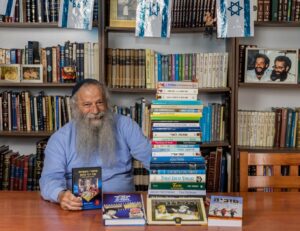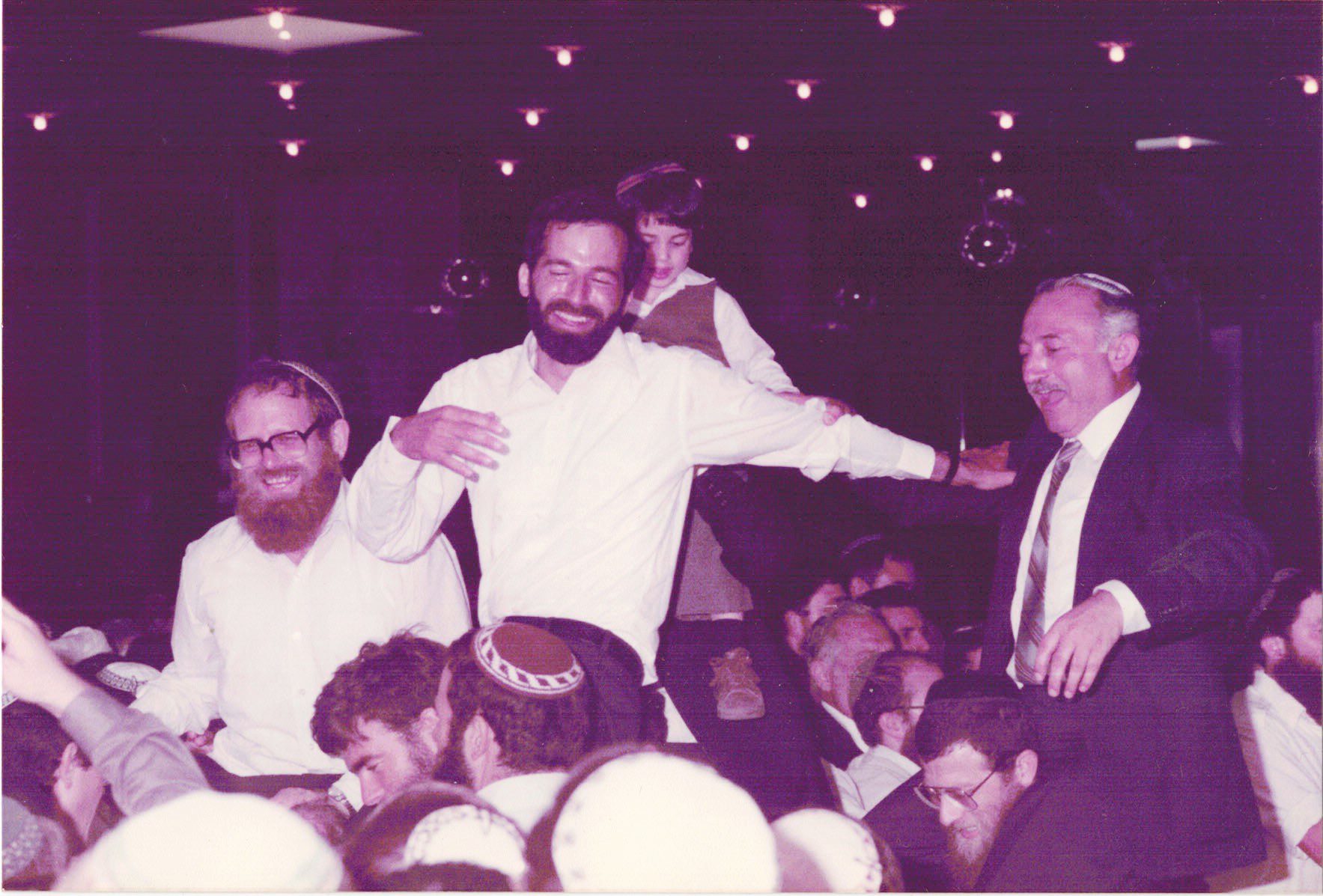From Hollywood to the Machon Meir Yeshiva in Jerusalem
by Tzvi Fishman

Two years before I came on aliyah, some 40 years ago, I was a young novelist and screenwriter in Hollywood. One day at the beach in Santa Monica, an actor friend from Israel who had grown up in a traditional Moroccan family asked me why I didn’t know anything about Judaism. His question set me off on a magical spiritual journey. That same day I bought an English-Hebrew Bible. Reading through the Book of Genesis as if it were a fast-moving screenplay, I knew I had to visit Israel. Traveling to the Holy Hand, I was overwhelmed by the biblical beauty and holiness of the Land. I intuitively sensed that if I was truly bent on returning to my roots, this was the place to do it. But I didn’t know where to begin. So I returned to the United States, abandoned Hollywood for the far more “Jewish” Manhattan, and began to learn Hebrew in the Jewish Agency building on Park Avenue.
One day at the beginning of the Operation Peace for the Galilee War, June 1982, two Israelis strode into the classroom. One of them, Meir Indor, was a clean shaven, lieutenant colonel in the Israeli Army. Today, he is the director of the Almagor Victims of Terror Association. His bearded partner, Rabbi Yehuda Hazani, of blessed memory, had a large knitted kippah, and wore sandals with socks. One of the founders and main activists for the Gush Emunim settlement movement, he was a teacher at the Mercaz HaRav Yeshiva. A few years later he established the joyous, flag-waving parade to the Kotel on Jerusalem Day. The first War in Lebanon had broken out, and the two energetic Israelis had traveled to New York looking for volunteers to help out on army bases and on the moshavim in the north while the locals were off at war. Besides the fact that the volunteers could cut down on the long army-reserve duty which Israelis faced during the war, Indor and Rabbi Hazani had been brainstorming for the past few months, trying to think up a project to bring Jews to Israel, and this was their brainchild. Their trip to New York was the birth of the “Volunteers for Israel” program, which later turned into “Sarel.” Indor and Rabbi Hazani built the organization until the leftist establishment forced them out, and for two years I directed the volunteer drive in New York.
I immediately decided to sign up at their emergency New York headquarters which was located in the Jewish Press newspaper building in Brooklyn. Back in those days, although I had been learning a little about Judaism, I still hadn’t made a firm decision about observing the Torah. Standing on the street, looking up at the large building of the Orthodox newspaper, I decided to put on a small kippah. From that day forth, after my subsequent meeting with the spirited Rabbi Hazani and Meir Indor, I continued wearing a kippah and it’s been getting bigger and bigger ever since.
Entering the fortress-like building, the security guard directed me to an upper floor where the volunteer project was headquartered. The large room was deserted and a dozen telephones were insistently ringing on the desks. Quickly, I began answering the calls and writing down the names and numbers of the people who were calling to volunteer to help Israel in its time of war. Not knowing what to tell them, I promised that someone would call them back soon.
As Shalom Aleichem would say, “b’kitzor,” to make a long story short, I kept answering the telephones for the first two years of the program. Having saved up some money from my novel and screenplay sales, I had free time to donate to the emergency recruitment drive. Before I knew it, Hazani and Indor made me the official U.S. program director. When the time came for the first charter plane to fly off to Israel filled with volunteers, Rabbi Hazani asked me to cancel my ticket and continuing running things in New York, including arranging for widespread publicity, dealing with El Al, and convincing all the nervous volunteers that things were completely organized in the Golan where they would be initially based until the ingenious plan was worked out to send subsequent planeloads to work in army bases around the country, believing that the quickest way to de-Americanize the Americans and make them feel like Israelis was to get them into green Tzahal uniforms and let them take pictures standing alongside real Israeli soldiers and tanks.
Within the first six months of the volunteer campaign we succeeded in sending more Jews to Israel than the Jewish Agency had sent in the past several years. At the end of ever long-distance phone call with Indor and Hazani I pleaded with them to find a new US director of the program and to let me come on Aliyah. It had become obvious to me that Israel, not Hollywood or New York, was the center of Jewish life. I realized that the Israelis were making all the news that mattered. The Jews of America were only reading about it. My future and the future of Am Yisrael lay in Israel.
When I finally arrived in the Holy Land, Rabbi Hazani took me to the Machon Meir Yeshiva. There I learned the real meaning of being Jewish. Within a year I married an Israeli girl who was learning in the sister program for women, Machon Ora. Thank the good L-rd.






